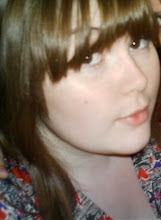"Tales from the shed” is a continuous interactive show performed at chickenshed Theatre Company in North London. “Tales” uses puppets, songs, dances, stories and sign language (BSL) to bring fun and learning to an audience aged 6 months to seven.
Chickenshed follow the “early year’s foundation stage” of which marks out standards to teach younger children, as well as progressing their development. Being an inclusive theatre, chickenshed already has a very strong ethos and its own unique style of teaching and including all its members, and so combining “the early years foundation stage” along with their own methods, chickenshed has created a fun, colourful and one-of-a-kind idea in which young children’s minds can start to learn.
“Babies and children develop their competence in communicating through having frequent, enjoyable interaction with other people, in context that they understand”(1) chickenshed applies this to “tales” as each week they perform Fridays and Saturdays and every week is different. They have a memory bank of songs, dances and stories of which they re-use to enable the slightly older children in each audience a chance to join in with anything they know if they want.
“early years foundation stage” under 1.1 child development also states “children learn to communicate in many ways, not just by talking, but also in non-verbal ways such as gestures, facial expressions and gaze directions, in drawings, writing and singing, and through dance, music and drama.”(2) This statement is one that chickenshed apply to all its children theatres as well as its “tales from the shed” sessions. “Tales” uses warm-ups in which they explore facial expressions, to not only warm-up the children but also to bring humour to the piece. The audience numbers can be up to eighty (parents and children) meaning the space is smaller and more personal. Members of the team spread out across the space into the audience too, giving the children a different set-up than that of a more conventional show, there is no edge of the stage so anyone can walk up and join in or give ideas, much like the idea Boal had with “forum theatre”. Using Augusto Boals idea of “forum theatre” “tales” tells stories “a participant has to intervene decisively in the dramatic action and change it”(3) chickenshed use Boals “forum theatre” to teach the audience morals through stories, and sometimes songs.
Child development (1.1) also states under “a competent learner” that: “plays and other imaginative and creative activities help children to make sense of their experiences and transforming their knowledge, fostering cognitive development” (4)
“Children learn better by doing, and doing things with other people who are more competent, rather than just being told.” (5)
Babies and children have the freedom to take-part or just watch the piece, there is no force from the performers/team for the audience to have to sing or dance along, but they do make it well-known that any participation is more than welcome, this means that chickenshed combine the ideas “the early years foundation stage” uses and apply them to an inclusive back-drop. They allow an environment for children in which they wish to further each individual child’s development, but in doing so also allow them to feel comfortable enough to watch or interact.
Should all children be taught using politics?
“Early year’s foundation stage” continually states that children grow and develop with the help of interaction through the media of drama, singing, drawing and acting. If being creative develops a child’s mind and how they learn then does it not stand-to-reason that every child should have the chance to learn in a performing arts environment? And doesn’t Boal argue all theatre is political? If so, surely through using politics to teach children it is an ideal way for a child’s educational and emotional development.
Many dyslexic children and adults learn well using number, letter and colours. Every individual person with dyslexia links themselves and how they learn to a colour. “Miss X” is twenty-two and doing a performing arts course. She has had a form of dyslexia since the age of nine when she became epileptic. The colour she can read easiest on a page is powdery blue.”
People with dyslexia learn best by doing something rather than viewing something, young babies and children learn very similarly to that of people who have dyslexia.(6) “Tales” has a colourful set onstage and interacts with the audience through out each piece each week stimulating each child to learn something from every individual session.
“The educational system still largely determines people’s life chances” (7) so if we can start the learning process from an early age, in a relaxed environment, do we set our children up to lead better lives?
refrences:
(1) "early years foundation stage" 1.1 child developement
(2) "early years foundation stage" 1.1 child development
(3) "Theatre of the oppressed"- Augusto Boal
(4) "early years foundation stage" 1.1 child development
(5) "early years foundation stage" 1.1 child development
(6) www.excellencegateway.org.uk search theories on dyslexia
(7) "transforming society? social work and sociology"- Vicky price and Graeme Simpson, page 83 (children in the educational system.)
Monday, 4 January 2010
Subscribe to:
Post Comments (Atom)

No comments:
Post a Comment